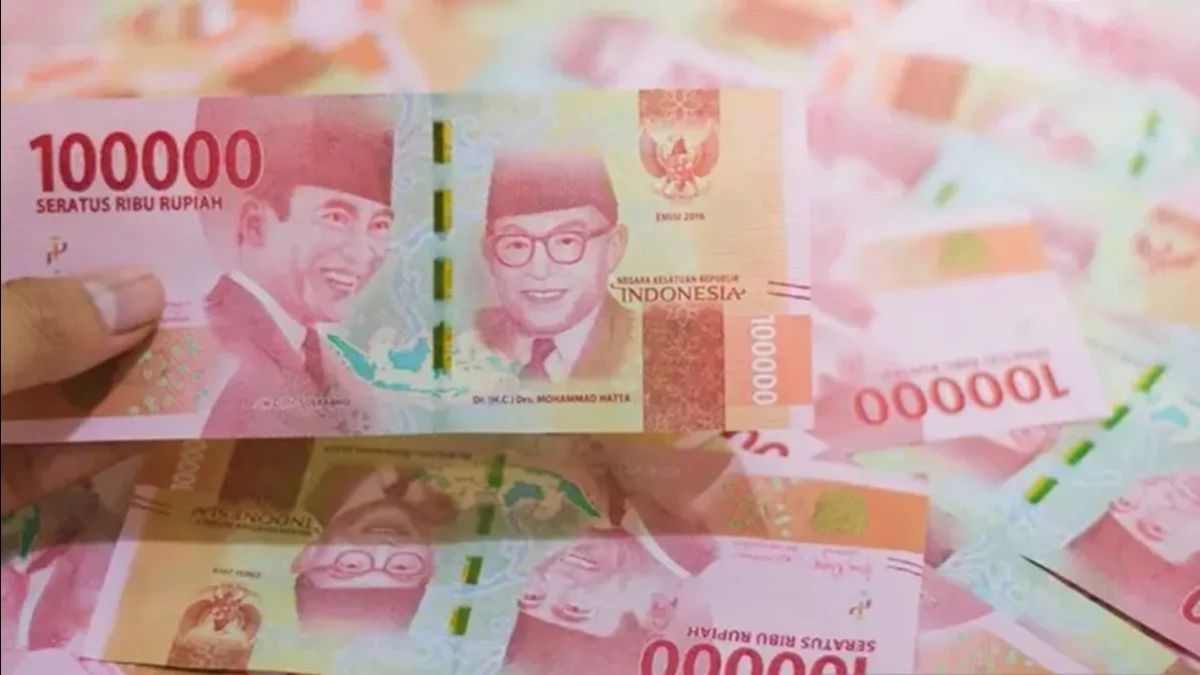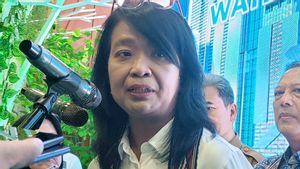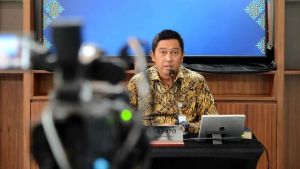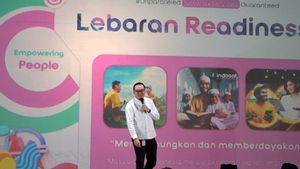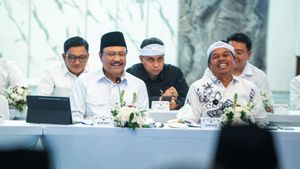JAKARTA - Developing and vulnerable countries are demanding clarity on climate funding commitments in COP29 which is taking place from 11-22 November 2024.
So far, developed countries have contributed to 80 percent of global historical emissions, so they must increase climate funding for poor and developing countries in accordance with the principle pay polluters.
"The delay in funding mobilization will further threaten the welfare of vulnerable groups and keep us away from the target of limiting the increase in the earth's temperature by 1.5 degrees Celsius," said ICEL's Head of Climate Governance and Justice Division Syaharani in a press statement, Thursday, November 14.
Based on the Paris Agreement (2015), developed countries in Annex I and II are required to pay climate funding as a form of the principle of Common But Differentiated Responsibility (CBDR).
Many hope that COP29 can agree on a funding commitment that includes three pillars of climate action: mitigation, adaptation and loss and damage (loss and damage) that suits global needs.
COP29 is also known as COP Finance because its main discussion is climate funding mobilization. One of the new funding targets at the meeting was the New Collective and Quantified Goal (NCQG).
However, at the beginning of the discussion, the draft draft for the purpose of this new funding had been rejected by G-77 countries because it was deemed not meeting expectations.
This certainly makes the commitment to mobilize climate funding far from the target meeting.
Funding commitments are a complicated issue. Since 2009 through Copenhagen Accord, developed countries have agreed to provide collective climate funds worth 100 billion US dollars per year to help poor and developing countries.
However, this commitment is difficult to realize due to Accord's non-binding nature. The amount of climate funding in the deal is also far from being needed.
Based on the latest calculations, climate funding will require at least US$8 trillion per year by 2030.
Syaharani assessed that climate funding is not only a matter of getting money, but ensuring fair funding. Currently, nearly 90 percent of global climate funding is aimed at mitigation.
"Economic losses due to climate change are projected to reach $447-894 billion per year by 2030. That does not include non-economic losses," he said.
This urgency demands a greater allocation of funding for adaptation and loss and damage, especially considering that there are many mitigation programs in Indonesia. The implementation of PLTU co-firing and large-scale renewable energy development, such as the Hydroelectric Power Plant (PLTA), for example, actually reduces adaptive power because it damages the ecosystem.
Indonesian Koaksi Indonesia Policy Manager Azis Kurniawan added that developing countries will need 1.1 trillion US dollars annually for climate funding.
"This funding is very crucial to accelerate the transition of renewable energy and help developing countries face the challenges of adaptation and mitigating the increasingly pressing climate crisis," said Azis.
Director of Climate Sustainable Governance-Civil Change, KEMITRAAN Eka Melisa emphasized the need to pay attention to sources and types of funding.
"Most of the climate funding that is planned to be disbursed in developing countries is controversial or loan," said Eka.
According to Eka, Indonesia needs to fight for sustainable funding indicators.
"This is important so that private investment, especially for large infrastructure projects on behalf of climate change adaptation, does not actually exacerbate the gap, injustice or increase the burden on the country in the form of debt," he said.
Executive Director of MADANI Berkelanjutkan Nadia Hadad mengatakan, sistem pendanaan yang adil dapat dirancangkan melalui reformarterikat pendanaan global.
One of them is by diverting the flow of global funding from sectors that are intensively emission to greener sectors.
"The fair distribution of funding must focus on efforts to protect and restore ecosystems, restore the environment and transition to renewable energy," said Nadia.
Indonesia must have a financial mechanism to ensure that there is no distribution of climate and environmental funds for actors who damage ecosystems and biodiversity and violate human rights.
"Indonesia needs strong policies to build a fair climate funding mechanism for vulnerable subjects," said Nadia.
Included in vulnerable subjects are indigenous peoples and local communities, farmers and small/traditional fishermen, workers, women, people with disabilities, and young people.
Nadia said that the distribution of climate funds must be prioritized for indigenous peoples and local communities as the frontline in maintaining, protecting and managing natural ecosystems as a living space and a source of their livelihood.
Currently, climate funding for indigenous and local communities is still very minimal.
Director of Nusantara Fund Ode Rakhman said that the distribution of funds for indigenous peoples and local communities must use a direct access mechanism with a larger portion.
"Direct funding for indigenous peoples and local communities is the most effective way compared to other funding mechanisms, such as the Village Fund," he said.
The Nusantara Fund has supported 157 initiatives of indigenous peoples and local communities in Indonesia worth 950,000 US dollars from January to October 2024.
SEE ALSO:
At the end of November 2024, the Nusantara Fund will distribute additional 600,000 US dollars in direct funding to support around 90 initiatives from indigenous peoples and local communities throughout Indonesia.
The distribution of climate funds directly for indigenous and local communities is an effective solution in an effort to increase social and ecosystem resilience from the risk of a climate crisis.
Indigenous and local people better understand living conditions and the challenges of biodiversity making it possible for them to implement effective solutions and sustainable practices,' said Ode. Direct funding mechanisms will also strengthen more equitable social and economic equality through collective ownership and fund management.
The English, Chinese, Japanese, Arabic, and French versions are automatically generated by the AI. So there may still be inaccuracies in translating, please always see Indonesian as our main language. (system supported by DigitalSiber.id)
